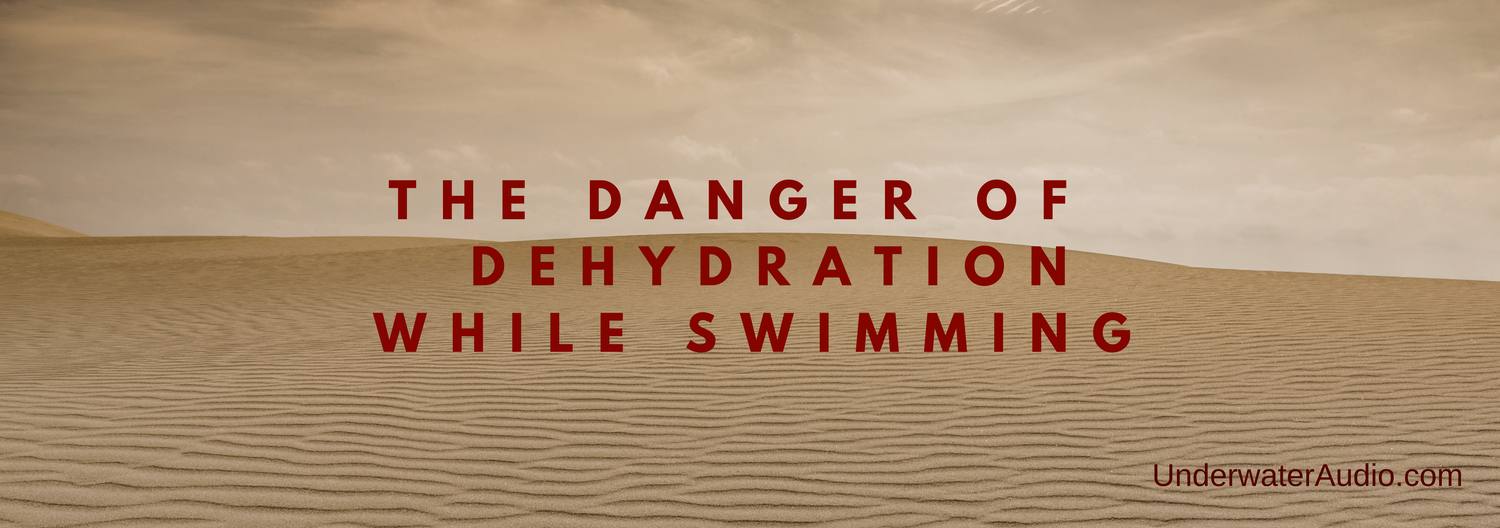Hydration is a key factor in swimming nutrition and performance. Yes, it seems kind of weird that you need to drink massive amounts of water to stay hydrated while hanging out in a big pool of water. But regardless of how wet and moist your skin feels, you can still be dehydrated on the inside.
But why is it important to stay hydrated? How does it effect your swim performance?
And how can you stay better hydrated in the future?
Effects of Dehydration
Being dehydrated is not just unhealthy in general. It has many negative effects that interfere with athletic ability.
Beyond making you feel thirsty, it "derails swim performance and causes other effects such as tiredness, headaches and confusion or poor judgment.”
Other symptoms of dehydration may include, “decreased urine output, little to no tears when crying…dizziness…difficulty swallowing foods… dry skin…fatigue, lack of sweat, irritability… and sunken eyes. You can also experience low blood pressure and fever if you’re severely dehydrated.”
How are you supposed to swim to your fullest if you’re tired or confused? Or dizzy? You may not be able to swim straight even if you tried. And you may be too out of it to even realize.

Winnond Image via Freedigitalphotos.net
How Much Water Do You Really Need?
Here is a formula for how to calculate the recommended ounces of water you should be drinking per day:
Body weight in pounds divided by 2 = the number of ounces of water you should drink per day.
And that doesn’t even account for what you have depleted when you exercise. Athletes need to drink even more than this to compensate for water lost through sweat and exertion.
It is recommended that you drink little sips of water on a regular basis all day long. Sipping as opposed to gulping. Avoid large quantities at a time. You want to avert water flooding or else much of your effort will be for naught (it will go straight through your system instead of absorbing properly).
How Can You Tell When You're Becoming Dehydrated?
Please, I’m begging you… Don’t just rely on thirst as the sole gauge for when you should drink water. It’s a bad idea.After all, “by the time you’re thirsty, your body has already lost a lot of fluids.” You are technically already dehydrated when this sensation occurs.
“When you’re getting plenty of fluids, your urine will appear light in color, you will be able to produce tears and your mouth and tongue will not be dry or sticky.”
Therefore, you can recognize or predict the onset of dehydration if your urine is getting darker in color and if your eyes or tongue are feeling more dry.
Replace All Other Beverage Choices With Water

Image via Pepsico.com
This mantra includes sports drinks. Most exercisers don’t need sports drinks. If you are working out for an hour or less, water is more than sufficient
The purpose of a sports drink is to replenish electrolytes and glycogen lost through sweating. You will not have lost enough electrolytes to warrant this until it’s been at least an hour. And that’s for a high intensity workout. Sticking with water for your entire beverage needs is a good start towards filling your recommended daily intake.
If you enjoy the taste of other drinks and you don’t want to sacrifice them, that’s ok.
Just make sure you are drinking them as extra and not in place of water. Many other beverages are not only less hydrating then water but also cause dehydration. Keep that in mind. You will need to account for this impact as well and increase water consumption even more to compensate.
Eat Hydrating Foods

sippakorn image via Freedigitalphotos.net
In other words, are you like me? The bad news is, you’ll probably still have to carry around a water bottle. The good news is, it might not have to be quite as big…
“Roughly 20% of our daily H2O intake comes from solid foods, especially fruits and vegetables.” So, eating your water makes the task of drinking water 20% less hard.
Here is a list of great foods with over 90% water content:
Cucumber (96.7%), Iceberg Lettuce (95.6%), Celery (95.4%), Radishes (95.3%), Tomatoes (94.5%), Green Peppers (93.9%), Cauliflower (92.1%), Watermelon (91.5%), Spinach (91.4%), Star Fruit (91.4%), Strawberries (91%), Broccoli (90.7%), Grapefruit (90.5%), Baby Carrots (90.4%), Cantaloupe (90.2%).
Snacking on these nutritious niblets will help you stay hydrated very effectively.
What's your Strategy? How do you keep hydrated on a daily basis? Do you have any awesome tips, tricks, or statistics that will illuminate us all on the issue? Be our guest! Share in the comments section.





Leave a comment
All comments are moderated before being published.
This site is protected by hCaptcha and the hCaptcha Privacy Policy and Terms of Service apply.